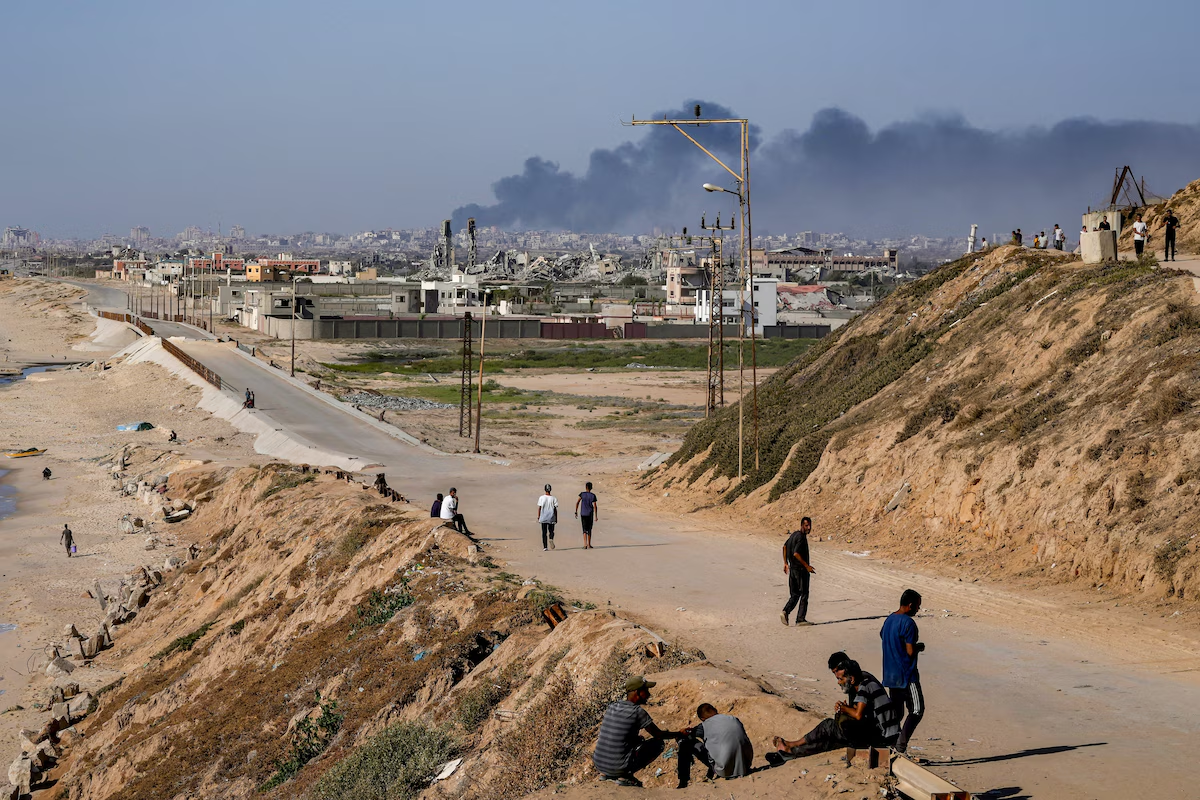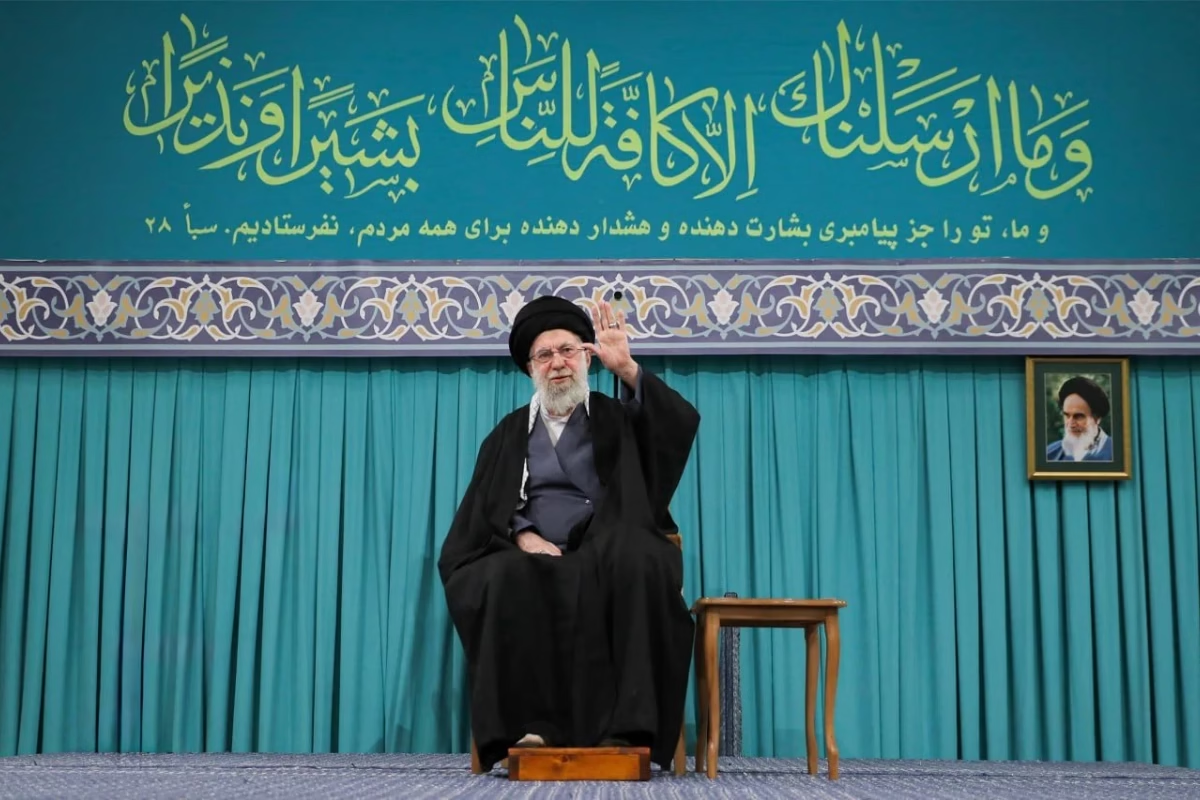As the Gaza conflict continues to simmer, recent statements from U.S. Secretary of State Antony Blinken have hinted at a possible significant geopolitical development: the normalization of relations between Saudi Arabia and Israel. During a press conference in Haiti, Blinken suggested that if a ceasefire is successfully established in Gaza before January, there is a strong possibility that Saudi Arabia could recognize Israel before U.S. President Joe Biden leaves office. This prospect marks a potential turning point in the Middle East, as Saudi-Israeli normalization has long been seen as a key step toward reshaping regional alliances.
Blinken’s Statement: A U.S. Perspective
According to Blinken, the ceasefire in Gaza plays a crucial role in advancing the diplomatic efforts that could lead to Saudi recognition of Israel. His statement aligns with U.S. diplomatic goals in the Middle East, which aim to strengthen regional stability and create alliances between Israel and its Arab neighbors. The U.S. administration, particularly under President Biden, has been pushing for further normalization deals following the Abraham Accords, which saw countries like the United Arab Emirates and Bahrain formalize ties with Israel.
The U.S. sees Saudi Arabia’s recognition of Israel as a major diplomatic win. Such a move would not only solidify Israel’s standing in the region but also serve as a counterbalance to Iran’s growing influence. However, the success of this endeavor seems closely tied to the situation in Gaza, where the conflict with Palestinian groups like Hamas remains unresolved.
Saudi Arabia’s Position on Recognition
While Blinken’s comments have stirred speculation, Saudi Arabia has not officially responded to the notion of recognizing Israel under the current circumstances. Historically, Saudi leaders have maintained that normalization with Israel is contingent upon resolving the Palestinian issue. Specifically, Saudi Arabia has emphasized the need for a viable two-state solution, one that recognizes Palestinian sovereignty alongside Israel.
In line with this stance, Saudi officials have repeatedly stated that until the Palestinians achieve their own state with East Jerusalem as its capital, recognition of Israel remains off the table. This policy reflects Saudi Arabia’s leadership role in the Arab world, where support for Palestinian self-determination continues to be a deeply rooted issue.
The Palestinian Conflict and Regional Diplomacy
The crux of Saudi Arabia’s reluctance to formalize relations with Israel lies in the enduring Palestinian-Israeli conflict. The ongoing violence in Gaza, where Israeli airstrikes and Palestinian rocket attacks have caused severe humanitarian crises, complicates any potential normalization deal. Since October last year, Israeli military operations have resulted in the deaths of approximately 40,000 Palestinians, with more than 90,000 others injured. These staggering figures illustrate the human toll of the conflict and the immense challenges facing any ceasefire agreement.
Palestinian groups like Hamas have made their opposition to any negotiations with Israel clear. They reject proposals for ceasefire talks or diplomatic engagement unless they address the longstanding issues of Palestinian statehood and territorial rights. Furthermore, Hamas insists that international mediators, including the U.S., pressure Israel to accept proposals for peace that have been put forward in the past. These demands reflect the deeply entrenched positions on both sides of the conflict, making any ceasefire agreement fragile at best.
Israel’s Stance and Future Negotiations
On the other side of the equation, Israel has shown resistance to normalizing relations with Saudi Arabia without addressing its security concerns. While Israeli officials have expressed willingness to engage with Saudi Arabia, they have been firm in their rejection of a peace deal that includes recognition of a Palestinian state in its current form. Israeli leaders argue that any such recognition must come with security guarantees and safeguards against potential threats from Palestinian territories.
In a related development, Israel’s Prime Minister recently dismissed the possibility of trading normalization with Saudi Arabia for a deal recognizing Palestinian statehood. This hardline stance underscores Israel’s strategic priorities in the region, where it views normalization with Arab states as a pathway to broader security cooperation, particularly in countering Iranian influence.
A Pivotal Moment for Middle Eastern Diplomacy
As the January deadline approaches, it remains uncertain whether the conditions will be right for Saudi Arabia to recognize Israel. A ceasefire in Gaza could pave the way for diplomatic progress, but much depends on how the conflict unfolds in the coming months. For Saudi Arabia, the question of Palestinian statehood is likely to remain a critical factor in any decision to normalize relations with Israel.
For the U.S., securing such a diplomatic breakthrough would represent a significant achievement in Middle Eastern diplomacy. It would build on the success of the Abraham Accords and further integrate Israel into the regional political framework. However, the U.S. must also navigate the delicate balance of addressing Palestinian grievances while fostering cooperation between Israel and its Arab neighbors.
A Complex Path Forward
while U.S. Secretary of State Antony Blinken has expressed optimism about the possibility of Saudi Arabia recognizing Israel before President Joe Biden leaves office, the path to normalization is fraught with challenges. The ongoing conflict in Gaza, Saudi Arabia’s stance on Palestinian statehood, and Israel’s security concerns all play critical roles in determining the future of these diplomatic efforts. As the situation continues to evolve, the international community will be watching closely to see whether a ceasefire in Gaza can indeed open the door to a historic realignment in the Middle East.



